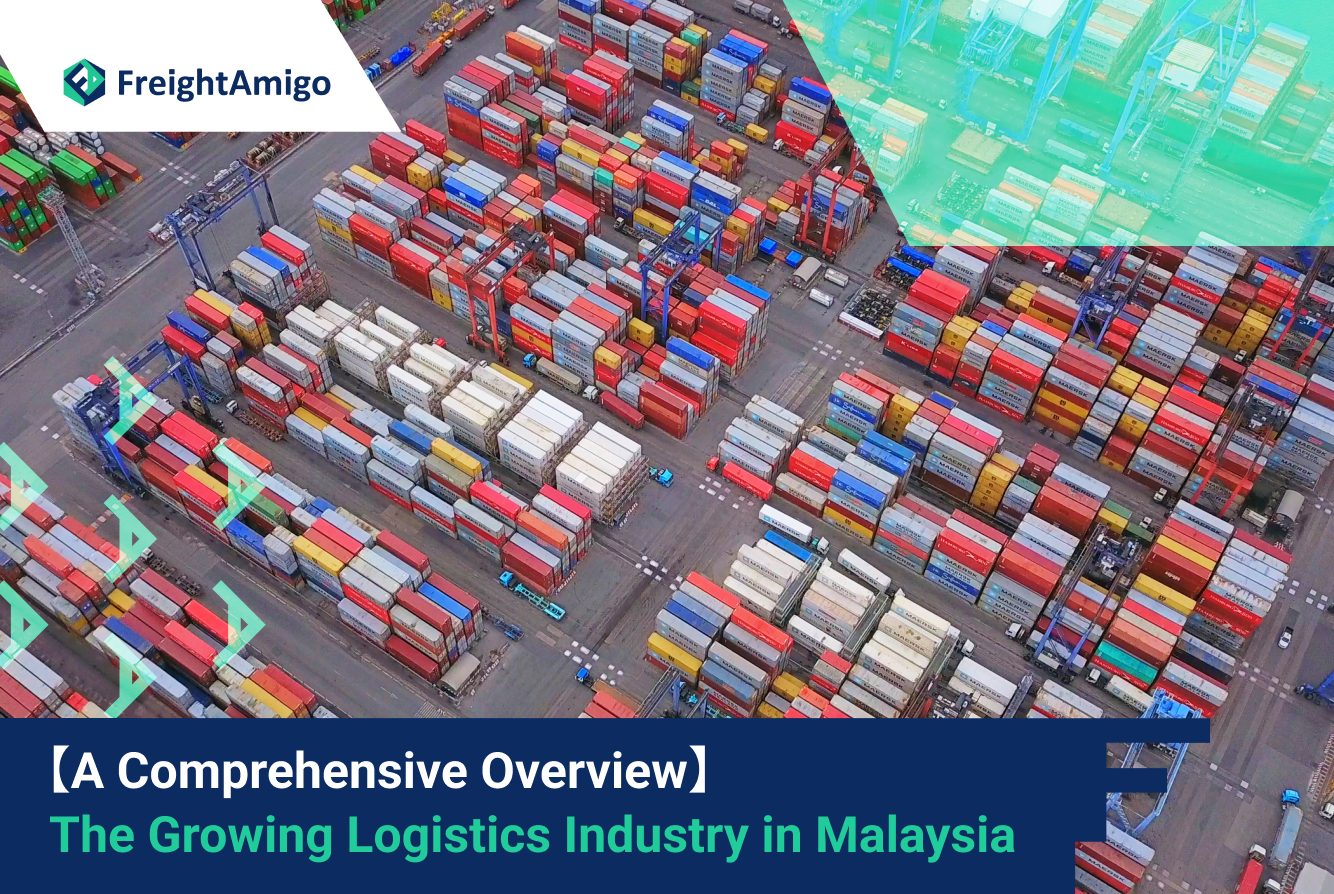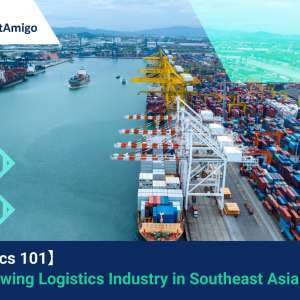Author Name: Tiffany Lee – Marketing Analyst at FreightAmigo
Introduction
The logistics industry in Malaysia has experienced significant growth and transformation in recent years. With a focus on key sectors such as manufacturing, food and beverage, electronics, automotive, and pharmaceuticals, Malaysia’s logistics market has become a vital player in the global supply chain. This article aims to provide a comprehensive overview of the logistics industry in Malaysia, highlighting its significance, trends, challenges, and opportunities.
Want To Compare The Best Express, Air Freight, Sea Freight, Rail Freight & Trucking Rates So As To Have Better Control On Cost?
The Importance of Logistics Infrastructure in Malaysia
Inland Ports as Gateways of Trade
Malaysia’s logistics infrastructure plays a crucial role in facilitating trade and commerce. Inland ports, such as Ipoh, Batu Pahat, and Nilai, serve as essential entry points for exporters and importers, making them crucial components of the country’s freight transportation system. These inland ports contribute significantly to Malaysia’s gross domestic product (GDP), accounting for 4-6% of the nation’s economic output.
Technological Advancements and Government Initiatives
The Malaysian government has prioritized the growth of the logistics sector, implementing initiatives such as the Third Industrial Masterplan (IMP3) and the Logistics and Trade Facilitation Masterplan. These initiatives aim to enhance logistics infrastructure, promote digitalization, and streamline trade processes. The adoption of new technologies, such as cloud-based platforms and digital workflow solutions, has contributed to the expansion of Malaysia’s logistics industry, enabling efficient and seamless supply chain management.
Market Trends and Drivers
E-commerce Revolutionizing the Logistics Landscape
The rapid growth of e-commerce has brought about a transformation in the logistics industry in Malaysia. With the rise of online shopping platforms and cross-border e-commerce, there has been a surge in demand for efficient last-mile delivery, warehousing, and fulfillment services. The convenience and accessibility of online purchasing, especially during the COVID-19 pandemic, have propelled the e-commerce sector, driving the need for seamless logistics solutions.
Increased Cross-border Trade Driving Market Growth
Malaysia’s strategic location in Southeast Asia positions it as a vital trade hub, connecting the East and the West. The country’s trade performance has been strong, with total trade increasing by 33.6% since February 2021. The establishment of free trade agreements and economic corridors has further boosted cross-border trade, creating opportunities for logistics service providers. The manufacturing sector, including industries such as electronics and automotive, generates a significant demand for logistics services, driving market growth.
Infrastructure Development and Government Support
The Malaysian government has invested heavily in infrastructure development, including ports, airports, and road networks. These developments have improved connectivity and logistics efficiency, attracting international logistics players to establish their presence in the country. Initiatives such as the National Logistics Master Plan and the Digital Free Trade Zone demonstrate the government’s commitment to strengthening the logistics infrastructure and streamlining trade processes, further supporting market growth.
Market Challenges and Opportunities
Infrastructure Bottlenecks and Congestion
Despite significant investments in infrastructure, Malaysia still faces challenges related to congestion at ports, limited warehousing capacity, and inadequate road networks. These bottlenecks can hinder the smooth flow of goods and lead to delays in supply chains. However, these challenges also present opportunities for innovation and improvement, with the potential for investment in infrastructure expansion and technological solutions to enhance logistics operations.
Regulatory Compliance and Documentation Requirements
The freight and logistics industry in Malaysia is subject to various regulations, including customs procedures, import/export restrictions, and documentation requirements. Complying with these regulations can be time-consuming and complex, affecting the efficiency of logistics operations. However, staying abreast of regulatory changes and developing efficient compliance systems can give logistics service providers a competitive edge.
Technological Advancements and Digital Transformation
The adoption of digital technologies is a significant opportunity for the logistics industry in Malaysia. Technologies such as blockchain, artificial intelligence, and the Internet of Things (IoT) can enhance supply chain visibility, optimize routes, and improve operational efficiency. Logistics companies that embrace digital transformation and offer innovative solutions can gain a competitive advantage in the market, meeting the evolving needs of customers in the digital age.
Key Players and Market Competition
The logistics market in Malaysia is highly competitive, with a mix of local and international players vying for market share. Key players in the industry include DHL, Tiong Nam, CJ Logistics, GD Express, and DHL Express. These companies offer a wide range of services, including freight forwarding, warehousing, and courier and parcel activities. Mergers and acquisitions have become a trend in the industry, as companies
seek to expand their network and service offerings to meet the growing demand.
Conclusion
The logistics industry in Malaysia is witnessing significant growth and transformation, driven by factors such as e-commerce, cross-border trade, and government support. With a focus on key sectors and the adoption of advanced technologies, Malaysia’s logistics market is poised for further expansion. However, challenges related to infrastructure, regulatory compliance, and skilled workforce shortage need to be addressed to unlock the industry’s full potential. As the industry evolves, logistics companies that embrace innovation and provide seamless and efficient services will thrive in this dynamic market.
There Are Different Options For Cargo Transportation. If You Want To Choose The Most Convenient And Suitable Solution, It Is Best To Have The Full Support Of Logistics Experts! If You Are Planning To Ship Goods Overseas, Please Go To The FreightAmigo Page For Inquiries.
===
Read More:
【Export of USA】 A Gateway to Success and Global Economic Influence
The Key Trade Partners of the USA: Boosting International Commerce
【Export of USA】 US-China Trade War’s Influence on USA’s Export Industry
Ship From Hong Kong To Malaysia – Book Courier Service In 1 Min
===
If you have any inquiries on logistics/supply chain, feel free to contact FreightAmigo now:
Chat with us online OR
Phone : +852 28121686
WhatsApp: +852 27467829









































